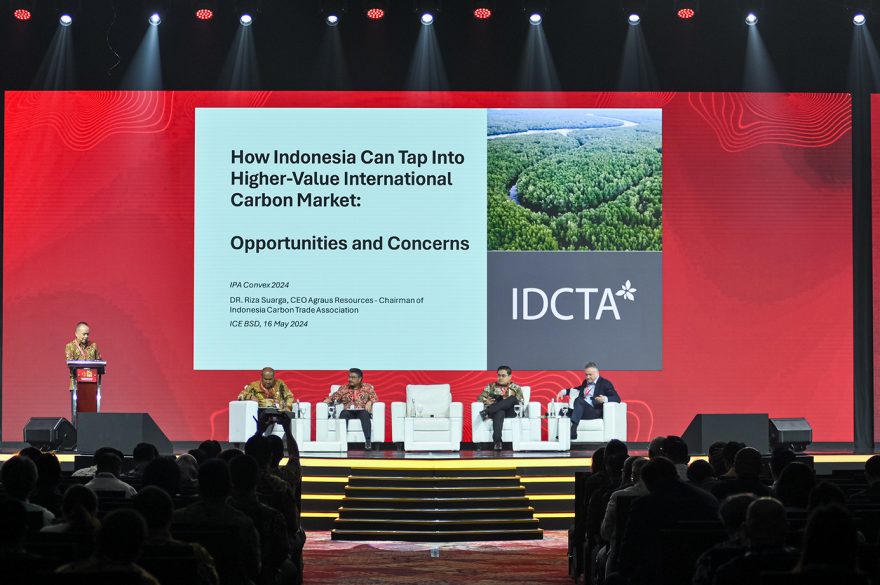CCS Implementation Crucial to Realize Carbon Business in Upstream Oil and Gas Industry
/
TANGERANG – The upstream oil and gas industry is one of the most potential industries to implement carbon trading business. Its implementation depends on the business players being able to apply Carbon Capture Storage (CCS) technology. With the financial and technological capabilities of the upstream oil and gas industry, the implementation of carbon trading is believed to be possible.
Hadi Setiawan, Policy Analyst at the Ministry of Finance, said that the government continues to improve regulations. Currently, the proposal to improve regulations as well as the addition of implementing rules is under discussion by the government. Derivatives of Presidential Regulation No. 14/2024 on the implementation of carbon capture and storage activities.
According to him, carbon pricing in the upstream oil and gas industry can only be implemented when Carbon Capture Storage (CCS) technology is already underway.
Hadi explained that carbon trading in the upstream oil and gas industry has not been optimized, so it must be stimulated with attractive regulatory support. The government is well aware of this.
“The upstream oil and gas industry emit considerable emissions and the way to reduce them is through CCS technology, and the government has made the regulation, the derivative regulations are still in process, hopefully it can be issued soon,” Hadi explained.
Business players can actually benefit more if they have implemented CCS. The advantages of CCS can be used as a new source of revenue for the company.
The Indonesian government has enacted Presidential Regulation Number 98 of 2021 concerning the Application of Carbon Economic Value in the Framework of Achieving NDC Targets and Controlling GHG Emissions in National Development, and Ministry of Environment and Forestry Regulation Number 21 of 2022 concerning Procedures for Applying Carbon Economic Value. In September last year, the Indonesia Stock Exchange established a Carbon Exchange to support the implementation of carbon trading. But to date, no oil and gas company has taken part in carbon trading directly.
Edwin Hartanto, Head of IDX Carbon’s Carbon Trading Development Unit, explained that the ecosystem in carbon trading needs to be better prepared. Implementing regulations are key.
According to Edwin, upstream oil and gas has a very good opportunity to engage in the carbon trading business, especially if CCS has been implemented. In practice, if an oil and gas company has CCS technology with a capacity greater than the emissions produced, the excess capacity can be offered to other parties.
“Oil and gas companies have more advanced expertise in CCS technology although the technology is still fairly expensive, we want this to continue to be broken down, so that this technology will decrease in price, thus the carbon credit price project can increase. The requirement is to focus on companies with high emissions first, if the carbon capture capacity is more, the rest can be sold, the opportunity is there,” Edwin explained.
Riza Suarga, Chairman of Indonesia Carbon Trade Associations, believes that the carbon market in Indonesia is still unfamiliar with carbon trading activities, especially in the upstream oil and gas sector. Therefore, the government needs to play a greater role in making the carbon trading climate more business-friendly. “Currently the market is still unstable, but Indonesia has taken a step forward with the support of the government,” Riza said.
